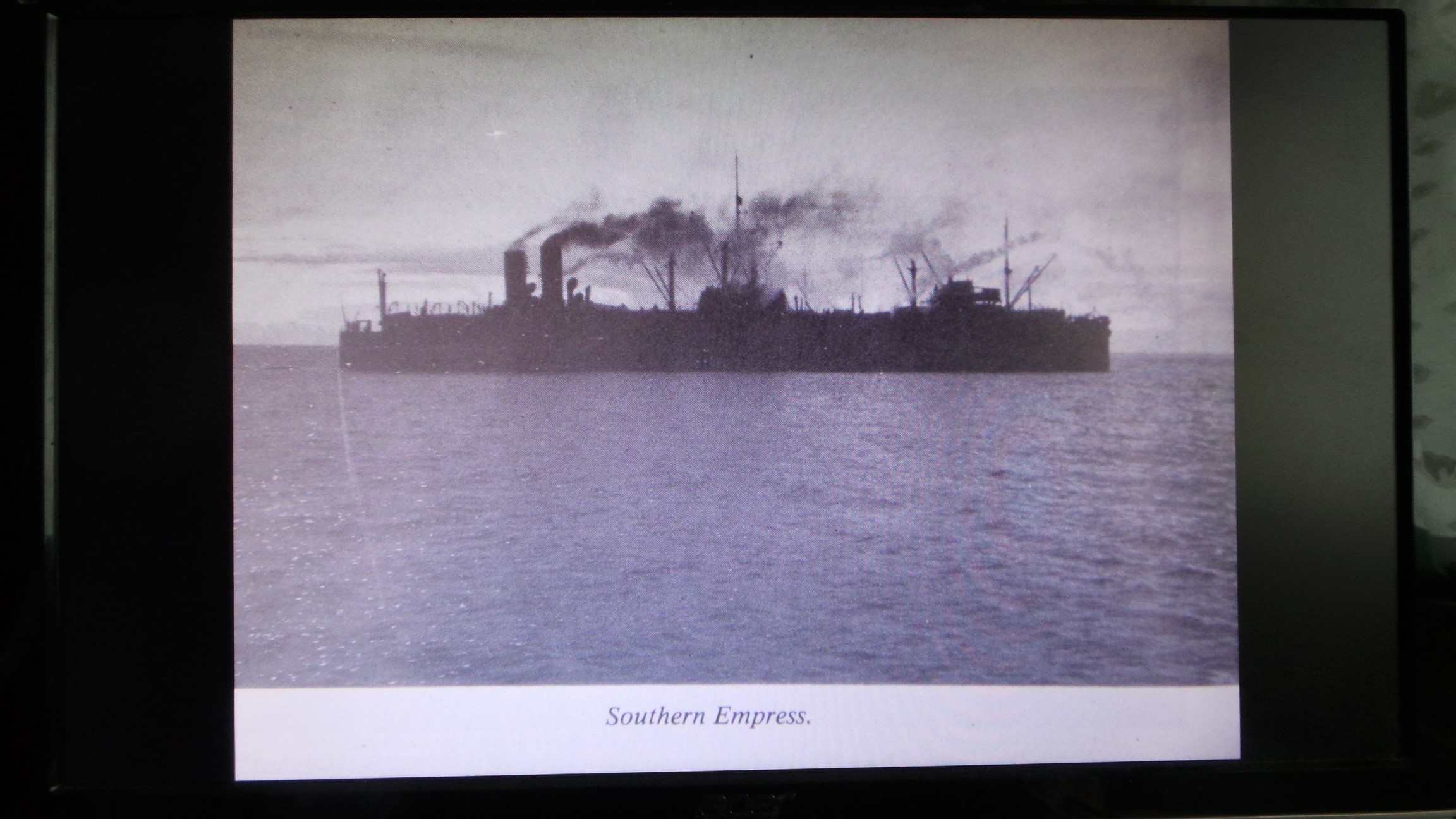ANGLESEY AND HOLYHEAD WHALERS
A letter from the Local "J.P." in the Local Paper in 1937
The Ministry of Labour is reducing Unemployment Benefit by 2 shillings a week to men in rural areas---Action?
An advertisement in the Local Paper at about the same time. WHALERS WANTED.
More than 100 young men were interviewed in the Pilot's house on Hibernia Row, Holyhead for work with the SOUTHERN WHALING AND SEALING COMPANY, a subsidiary of Unilever.
44 young men and boys were taken on for the annual voyage to Antarctica to work on the ships SOUTHERN EMPRESS and SOUTHERN PRINCESS. They left from Liverpool 5th October 1937 for the first leg to VENEZUELA to take on extra fuel to fill the tanks for the Catcher ships they would join up with in South Africa. They then crossed the South Atlantic Ocean to Capetown and Durban where the fleet was reunited. They then set out together on the long journey to South Georgia. During that journey the extra fuel tanks were cleaned out to receive whale oil. Now the factory ships at Grytvnik Harbour, Antartica were ready to be used for processing the whales at sea as it was cheaper than processing for the oil on land. The whales were hunted mainly for the oil to use in street lamps, soap manufacture and the leather industry. The main species of whale hunted were BLUE, SPERM, FIN & HUMPBACK. The baleen was used for ladies clothing, corsets, fans and umbrellas. The 1937/38 the expedition caught and processed a total of 1757 whales. The SOUTHERN PRINCESS,  on which my father William Robert Brown (1905-1991) worked produced 11,000 barrels of oil and 1700 barrels of liver flukes. My father's job was to be in the "crow's nest" on the mast looking out for sightings of whales. He would shout out "there she blows" and instruct the gunners "port" or "starboard". The earnings my father received were £132 for 26 weeks work (including food and accommodation) plus an £80 bonus at the end of the voyage (based on the amount of oil processed). The average gross wage in Holyhead at this time was £2 per week. While on board £52 was sent directly to his wife. ln 1939, when World War ll began the factory ships were requisitioned by the Admiralty for use in transporting fuel and goods.
on which my father William Robert Brown (1905-1991) worked produced 11,000 barrels of oil and 1700 barrels of liver flukes. My father's job was to be in the "crow's nest" on the mast looking out for sightings of whales. He would shout out "there she blows" and instruct the gunners "port" or "starboard". The earnings my father received were £132 for 26 weeks work (including food and accommodation) plus an £80 bonus at the end of the voyage (based on the amount of oil processed). The average gross wage in Holyhead at this time was £2 per week. While on board £52 was sent directly to his wife. ln 1939, when World War ll began the factory ships were requisitioned by the Admiralty for use in transporting fuel and goods.
Compiled by Gwyneth Peters March 2019